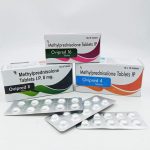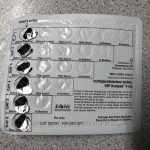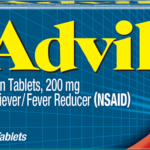Why Take Methylprednisolone Before Breakfast

Generally, we all want our medicines to be as effective as possible, and that requires effort on our part. It may be necessary to avoid taking pills with certain foods or drinks and to check that medications won’t interfere with each other.
And in some cases, it may be important to take a drug at a particular time of day. This approach, known as chronotherapy, is gaining attention as research suggests a relationship between when we take medications and how well they work.
What is methylprednisolone?
Methylprednisolone is a prescription drug that’s available as the brand-name drug Medrol. It’s also available as a generic drug. Methylprednisolone also comes as a suspension or solution. Those forms are given to you by a healthcare provider.
This drug is used to treat many conditions. It helps to control inflammation and to modify your body’s immune response. The conditions it’s used to treat include:
• endocrine disorders such as primary or secondary adrenocortical insufficiency
• rheumatic disorders such as rheumatoid arthritis or psoriatic arthritis
• collagen diseases such as lupus or systemic dermatomyositis
• skin diseases such as psoriasis or Stevens-Johnson syndrome
• severe allergies that haven’t been controlled with other treatment, such as seasonal or year-round allergies or allergic reactions to medications
• eye problems such as swelling or ulcers (sores) in your eye
• stomach or intestinal problems such as ulcerative colitis or Crohn’s disease
• respiratory problems such as lung damage caused by beryllium poisoning, or by Loeffler’s syndrome that’s not controlled by other treatments
• blood disorders such as low levels of platelets in adults, or lack of red blood cells in children
• neoplastic diseases such as blood cancer or cancer in the lymphatic system in adults
• multiple sclerosis flare-ups
• infections, such as trichinosis with brain or heart problems
How it works
Methylprednisolone belongs to a class of drugs called glucocorticoids. A class of drugs is a group of medications that work in a similar way. These drugs are often used to treat similar conditions.
Methylprednisolone works by decreasing inflammation and changing your body’s immune response. This reduces the inflammation caused by your condition.
How should this medicine be used?
Methylprednisolone comes as a tablet to take by mouth. Your doctor will prescribe a dosing schedule that is best for you. Follow the directions on your prescription label carefully, and ask your doctor or pharmacist to explain any part you do not understand. Take methylprednisolone exactly as directed. Do not take more or less of it or take it more often than prescribed by your doctor.
Do not stop taking methylprednisolone without talking to your doctor. Stopping the drug abruptly can cause loss of appetite, upset stomach, vomiting, drowsiness, confusion, headache, fever, joint and muscle pain, peeling skin, and weight loss. If you take large doses for a long time, your doctor probably will decrease your dose gradually to allow your body to adjust before stopping the drug completely. Watch for these side effects if you are gradually decreasing your dose and after you stop taking the tablets. If these problems occur, call your doctor immediately. You may need to increase your dose of tablets temporarily or start taking them again.
Why Take Methylprednisolone Before Breakfast
The major reason methylprednisolone should never be taken on an empty stomach is because it may cause gastrointestinal symptoms or an upset stomach.
Methylprednisolone is best taken in the morning, after breakfast, and before 9 a.m. For example, if your prescribed dose is 30mg daily, it’s usual to take 6 tablets (6 x 5mg) all at the same time after breakfast.
If your doctor has told you to do otherwise, you must take the tablets exactly as you have been told. Take methylprednisolone with food. Swallow the tablet with a drink of water.
How long before breakfast should I take methylprednisolone?
Do not take methylprednisolone before breakfast or on an empty stomach. The medication is best taken in the morning, after breakfast, and before 9 a.m to avoid gastrointestinal adverse effects.
What to avoid while taking methylprednisolone?
Before taking methylprednisolone,
• tell your doctor and pharmacist if you are allergic to methylprednisolone, aspirin, tartrazine (a yellow dye in some processed foods and drugs), or any other drugs.
• tell your doctor and pharmacist what prescription and nonprescription medications you are taking, especially anticoagulants (‘blood thinners’) such as warfarin (Coumadin), arthritis medications, aspirin, azithromycin (Zithromax), clarithromycin (Biaxin), cyclosporine (Neoral, Sandimmune), digoxin (Lanoxin), diuretics (‘water pills’), erythromycin, estrogen (Premarin), ketoconazole (Nizoral), oral contraceptives, phenobarbital, phenytoin (Dilantin), rifampin (Rifadin), theophylline (Theo-Dur), and vitamins.
• if you have a fungal infection (other than on your skin), do not take methylprednisolone without talking to your doctor.
• tell your doctor if you have or have ever had liver, kidney, intestinal, or heart disease; diabetes; an underactive thyroid gland; high blood pressure; mental illness; myasthenia gravis; osteoporosis; herpes eye infection; seizures; tuberculosis (TB); or ulcers.
• tell your doctor if you are pregnant, plan to become pregnant, or are breastfeeding. If you become pregnant while taking methylprednisolone, call your doctor.
• if you are having surgery, including dental surgery, tell the doctor or dentist that you are taking methylprednisolone.
• if you have a history of ulcers or take large doses of aspirin or other arthritis medication, limit your consumption of alcoholic beverages while taking this drug. Methylprednisolone makes your stomach and intestines more susceptible to the irritating effects of alcohol, aspirin, and certain arthritis medications. This effect increases your risk of ulcers.
Methylprednisolone side effects
Get emergency medical help if you have signs of an allergic reaction to methylprednisolone: hives; difficult breathing; swelling of your face, lips, tongue, or throat.
Call your doctor at once if you have:
• shortness of breath (even with mild exertion), swelling, rapid weight gain;
• bruising, thinning skin, or any wound that will not heal;
• blurred vision, tunnel vision, eye pain, or seeing halos around lights;
• severe depression, changes in personality, unusual thoughts or behavior;
• new or unusual pain in an arm or leg or in your back;
• bloody or tarry stools, coughing up blood or vomit that looks like coffee grounds;
• seizure (convulsions); or
• low potassium – leg cramps, constipation, irregular heartbeats, fluttering in your chest, increased thirst or urination, numbness or tingling.
Steroids can affect growth in children. Tell your doctor if your child is not growing at a normal rate while using this medicine.
Common methylprednisolone side effects may include:
• fluid retention (swelling in your hands or ankles);
• dizziness, spinning sensation;
• changes in your menstrual periods;
• headache;
• mild muscle pain or weakness; or
• stomach discomfort, bloating.
This is not a complete list of side effects and others may occur. Call your doctor for medical advice about side effects. You may report side effects to FDA at 1-800-FDA-1088.





